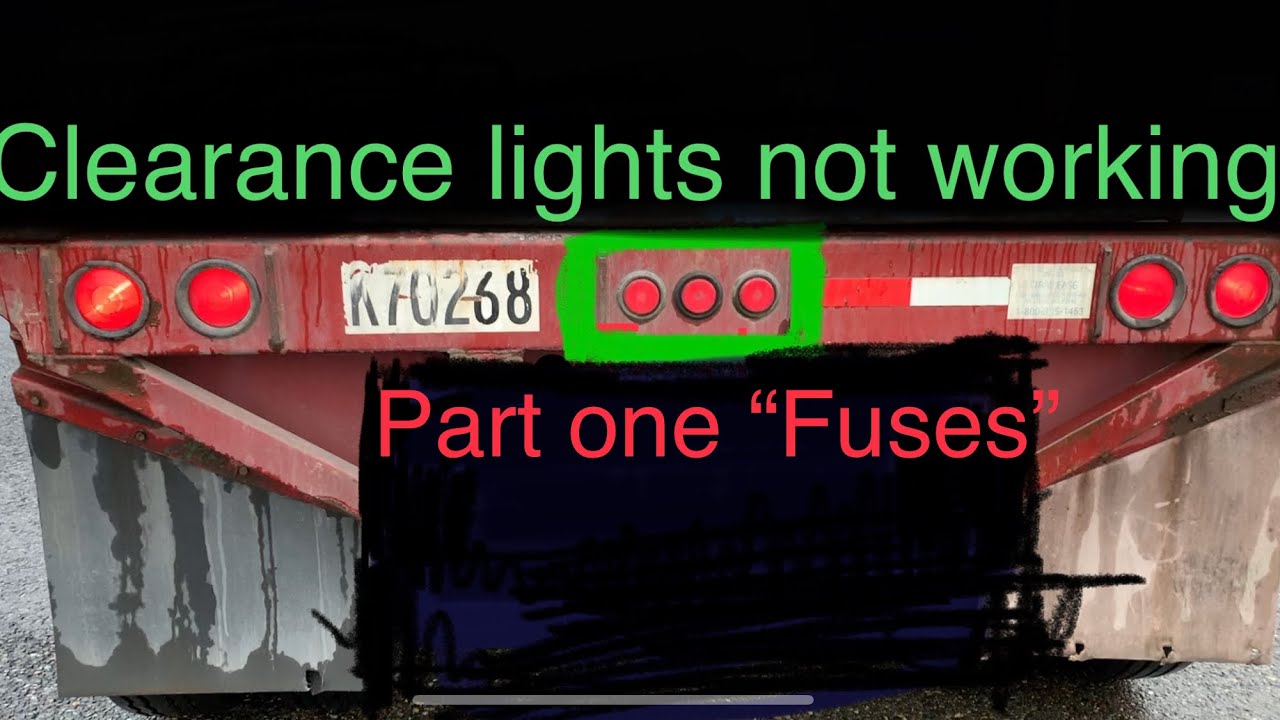Imagine your trailer as a seasoned performer on the open road—a grand stage where narrative unfolds with every mile. The running lights are their spotlight, guiding them through the night’s darkness and signaling their presence to the world. However, what happens when the spotlight flickers, dims, or ceases to glow altogether? The performance falters, leaving the audience—your fellow drivers—in the dark. Understanding why your trailer’s running lights are not functioning can ensure that your journey continues without a hitch.
First, let’s explore the anatomy of your trailer’s lighting system. The running lights are akin to the subtle cues in a conversation, silently communicating your intentions while ensuring safety. They are powered by a series of intricate electrical connections that link the trailer to the towing vehicle. A plethora of wires, connectors, fuses, and bulbs work in concert. When one element falters, the entire system can go dark.
One of the most common reasons for malfunctioning running lights arises from poor electrical connections. Think of these connections as the threads of a delicate tapestry—if one thread is frayed or broken, the entire fabric can unravel. Corrosion from moisture, dirt, or age can be the culprit, creating resistance that interrupts the flow of electricity. Regularly inspecting your connections for signs of wear, rust, or damage can help keep this tapestry tightly woven.
Next on the list is the age-old adversary: blown fuses. A fuse can be likened to a gatekeeper, protecting your electrical system from overwhelming currents. If a running light draws too much power—perhaps due to a fault in the wiring—the fuse sacrifices itself to prevent a larger disaster. Check your trailer’s fuse box periodically, as it houses these protective components. Replacing a blown fuse can be a simple yet vital remedy to restore your running lights’ luster.
Wiring issues are yet another possible villain in this narrative. Wiring that has been damaged by driving conditions or wildlife can cut power to your lights unexpectedly. Towed trailers endure a barrage of elements—from the scorching sun to driving rain—which can wear down wiring insulation over time. Inspect the wiring harness for exposed or frayed wires; if any leaks are found, they should be repaired or replaced to restore functionality.
Moreover, a seemingly innocuous factor may lie in the bulbs themselves. Halogen or LED bulbs can burn out, much like the final flicker of a flame at day’s end. Testing each bulb in the running light assembly is essential. The absence of illumination from even a singular bulb can throw off the entire lighting system. Consider carrying spare bulbs, akin to having a backup plan when the unexpected occurs; they can easily be swapped out when darkness descends.
Moving further along this enlightening journey, we must consider the intricacies of the trailer’s wiring diagram. Understanding how your trailer’s dedicated circuits interact is crucial; this is akin to deciphering a map before embarking on an uncharted adventure. A misplaced connection can lead to a litany of lighting issues. Consult the manufacturer’s guidelines for insights into the wiring layout. Following the pathways etched in the diagrams lays the groundwork for troubleshooting with intent.
As we delve deeper, let’s not overlook the connection between the towing vehicle and the trailer. A defective connector on either end could create a barrier, preventing the electricity’s joyful journey from one to the other. Detach the connector and examine the pins for signs of corrosion or bending. Cleaning the contacts with a wire brush can often breathe new life into these connections, inviting electricity to flow once more.
Adaptability is crucial in our examination of this age-old dilemma. If multiple lights are malfunctioning, delve into the possibility of a more systemic issue, such as short circuits or wiring defects that may cascade through the system—akin to a domino effect. Identifying the root of the problem could save you time, hassle, and the headache of dealing with a malfunction while miles away from civilization.
Even after diligent investigation, one may still find the darkness unyielding. At this stage, it’s wise to consider enlisting the counsel of a professional electrician familiar with trailer lighting systems. An experienced technician can assess your situation with the deftness of a conductor conducting a symphony, ensuring each element harmonizes to produce a flawless performance.
To conclude this exploration of your trailer lights’ potential pitfalls, remember that understanding the complex interplay of factors affecting your running lights is critical. Regular maintenance is an assurance of reliability, akin to tuning a fine instrument before a concert. Guard against moisture, inspect connections, and be proactive in your approach. When your trailer’s running lights shine brightly, they not only illuminate the path ahead but also cultivate trust among fellow travelers on the road. Your journey deserves a well-lit narrative, resonating with safety and assurance. Embrace the adventure and let your lights guide the way.
